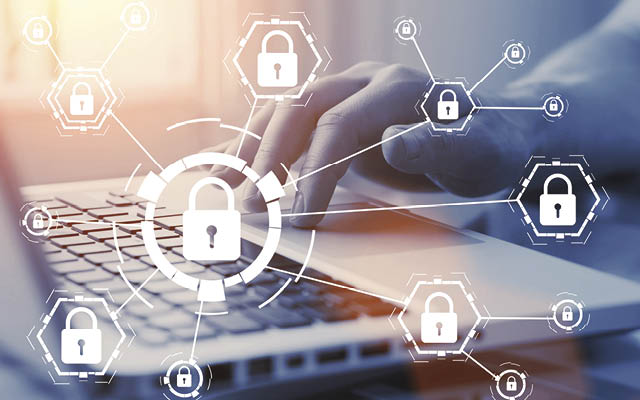The Privacy Rights Clearinghouse (PRC) — a nonprofit consumer-advocacy group — offers a few suggestions, including using the “private browsing” or “do not track” setting on your web browser; creating stronger passwords (longer ones that incorporate special characters such as $, %, and #); and loading VPN (virtual private network) software, which defends against hacking when you’re using public Wi-Fi networks like those in airports and coffee shops. VPNs help keep the web pages you visit, log-in details, and contents of email messages encrypted and thus useless to a hacker.
The group also recommends enabling two-factor identification, whenever available, for accessing your online records, and carefully reading the privacy policies of apps and websites to understand how the company could use your data. (For more tips, visit www.privacyrights.org.)
But cybersecurity expert Bruce Schneier, a fellow at the Berkman Klein Center for Internet and Society at Harvard University, is pretty uncompromising about this topic. “Absolute security is impossible, as in any aspect of human life. And right now, surveillance is the business model of the internet,” he says.
“Everybody is spying on you for their own purposes. Gmail spies on your email; Facebook spies on your posts. That’s their business model; that’s what you sign up for when you use those services. If my bank wants to sell my bank data, there’s nothing I can do.”
Corporate surveillance and monetization of our lives via digital devices, which has been in the news for years, is “a policy question, not a matter of personal choice,” he notes. “You can use an app like DuckDuckGo, and your browsing habits will be more private; but you are still not in control of any appreciable amount of this surveillance. The online privacy problem is a 10, and with DuckDuckGo you’ve made it maybe a 9.998.”
In other words, it’s government policy that will make a real difference in this arena, and so far, says Schneier, “the internet companies are powerful, and they make sure policy stays weak.”
Paul Stephens, PRC’s director of policy and advocacy, is more upbeat about the possibilities of privacy. “Yes, it’s difficult to maintain it, but I think the emphasis should be on difficult rather than impossible,” he says. “Be conscious that privacy and convenience are a tradeoff. The more convenience we opt for in our devices and the apps on our phones, the less privacy we’ll have.”
This originally appeared as “What’s the best way to protect my privacy online?” in the September 2019 print issue of Experience Life.




This Post Has 0 Comments